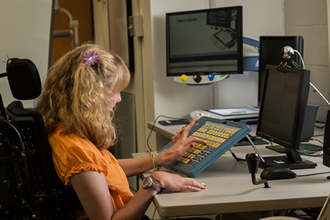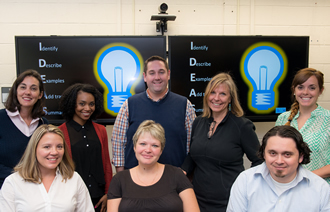Grants Archives
Research Grants
Disclaimer: Following grants, programs, camps, and activities may no longer be active/available and displayed only for the informative and historical reasons.
FraMEBuild the FRaME: Using Feedback, Reflection, and Multimedia to Teach Evidence-Based Practices for Effective Classroom Management.
Purpose: Teachers nationwide report feeling underprepared to manage classrooms that include students with disabilities or students who demonstrate problematic behaviors that escalate to class wide disruption. Teacher candidates and novice teachers report significantly lower self-efficacy concerning their ability to affect student outcomes and behaviors compared with experienced teachers. The research team will address this need by developing a feasible and sustainable multimedia intervention that, when used by teachers during their preparation to become professionals, will result in positive engagement and academic achievement of K–12 students with disabilities.
VERIFYProject VERIFY Value Added Through E-Coaching, Reflection, Instructional Technology, Feedback, and You
Purpose: Project VERIFY (Value Added Through E-Coaching, Reflection, Instructional Technology, Feedback, and You) intends to deliver school leaders (e.g., principals, instructional coaches, and teacher leaders) with responsibility for providing professional development (PD) to teachers of students with disabilities a web-based suite of data-driven tools called COACHED (Capturing Observations and Collaboratively sHaring Educational Data). The goal of Project VERIFY’s technology-based PD is to help school leaders to independently support teachers’ enactment of evidence-based academic vocabulary instruction at the elementary level for students with disabilities.
Project WeGotIT!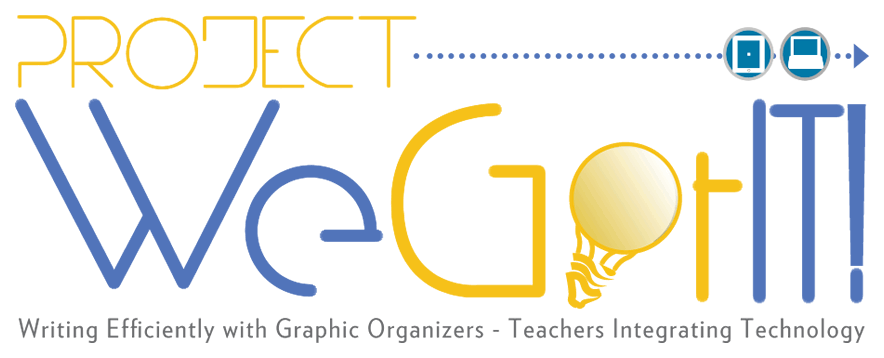
Project WeGotIT! Writing Efficiently with Graphic Organizers – Teachers Integrating Technology aims to improve essay writing for struggling writers with and without disabilities. WeGotIT!'s team has developed, tested, refined, and validated a variety of writing interventions in 3rd-12th grades.
Project STEM UPSelf-Regulation of Science Learning in the Context of Educational Game Creation: A Study of Middle School Students with Learning Disabilities (National Science Foundation REAL #1420448). This broadening participation research project will contribute to foundational knowledge about how middle school students with learning disabilities can better learn science as they learn to create educational computer games.
ACTIV 1.0 ProjectACTIV 1.0 tool was conceptualized to address the gap in age/developmentally appropriate technology by allowing adaptations of age appropriate video clips with necessary accommodations to make them developmentally appropriate for students with intellectual disabilities. The ability to adapt the existing academic video clips encourages students with disabilities to engage in similar academic activities like their peers. ACTIV 1.0 was developed through a design research approach. The Integrative Learning Design (ILD) framework provided a map to view the overall design research process.
Model Programs
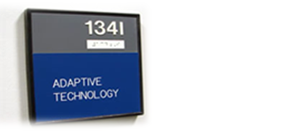 Assistive Technology Initiative (ATI)
Assistive Technology Initiative (ATI)
The mission of the ATI is to provide individuals with disabilities access to technology, which is available to all GMU employees and students, so that they have the tools needed to be as independent and successful as possible in GMU's academic environment.
 CompuWrite
CompuWrite
CompuWrite is a computer writing camp for students with learning disabilities in grades 3 through 6. The primary focus of the camp is to work with students having difficulty in the writing process. The teacher/student ratio is typically 1:2. Students work on the five stages of writing by combining writing strategies with technology tools.
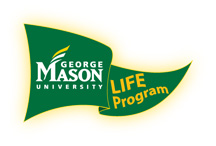 Mason LIFE (Learning Into Future Environments) (Mason LIFE)
Mason LIFE (Learning Into Future Environments) (Mason LIFE)
The Mason LIFE (Learning Into Future Environments) Program is a post secondary program for young adults with intellectual disabilities who desire a college-like experience in a supportive environment.
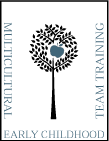 Multicultural Early Childhood Team Training (MECTT)
Multicultural Early Childhood Team Training (MECTT)
This is a joint project between the KIHd and the Parent Educational Advocacy Training Center (PEATC). The Multicultural Early Childhood Team Training (MECTT) is a federally funded project that prepares parent and professional teams to improve services to diverse families of young children with special needs--infusing cultural competence in early childhood programs.
Technical Assistance
 Region 4 Training and Technical Assistance Center (T/TAC)
Region 4 Training and Technical Assistance Center (T/TAC)
The mission of T/TAC is to improve educational opportunities and contribute to the success of children and youth with disabilities (birth - 22 years). The T/TAC Centers provide quality training and technical assistance in response to local, regional, and state needs. T/TAC services strive to increase the capacity of school personnel, service providers, and families to meet the needs of children and youth. Please feel free to visit the different areas of our site to see if T/TAC can be of assistance to you and your needs.
 Virginia Accessible Instructional Materials Center (AIM-VA)
Virginia Accessible Instructional Materials Center (AIM-VA)
The Virginia Accessible Instructional Materials Center (AIM-VA), part of the Helen A. Kellar Institute for Human disAbilities at George Mason University, will produce and deliver accessible instructional materials for Local Educational Agencies (LEAs) in Virginia who have students with print disabilities. The AIM-VA will also provide training and technical assistance to LEAs who will order and use these accessible instructional materials. The AIM-VA will also assist the Virginia Department of Education (VDOE) to implement the National Instructional Materials Accessibility Standards (NIMAS) regulations under the Individuals with Disabilities Education Act (IDEA).
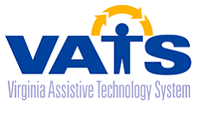 Virginia Assistive Technology System North (VATS North)
Virginia Assistive Technology System North (VATS North)
The Virginia Assistive Technology System North (VATS North) is a regional site for the Virginia Assistive Technology System(VATS), which is a statewide systems change project committed to improving the quality of life for all Virginians by increasing awareness and accessibility of assistive technology. VATS North also has the responsibility of being an ATLFA regional loan application center under a grant award to the Department of Rehabilitative Services/Virginia Assistive Technology System (DRS/VATS) and ATLFA from the US Department of Education, NIDRR.
 Virginia's Training and Technical Assistance Centers (T/TAC) Online (T/TAC Online)
Virginia's Training and Technical Assistance Centers (T/TAC) Online (T/TAC Online)
The mission of Virginia's Training and Technical Assistance Centers (T/TAC) is to improve educational opportunities and contribute to the success of children and youth with disabilities (birth - 22 years). The Centers provide quality training and technical assistance in response to local, regional, and state needs. T/TAC services increase the capacity of schools, school personnel, service providers, and families to meet the needs of children and youth.
Training Grants
 Applied Behavior Analysis Program (ABA)
Applied Behavior Analysis Program (ABA)
Applied Behavior Analysis is a discipline devoted to understanding human behavior and to bringing about improvements in behavior and quality of life that are significant to the individuals involved.
Doctoral Cohort Program in Special Education
Principal Investigators: Margo A. Mastropieri, PhD University Professor and Professor of Special Education AND Thomas E. Scruggs, PhD, University Professor, Director of the PhD in Education Program, and Professor of Special Education
 PhD Special Education Leadership Grant
PhD Special Education Leadership Grant
Seeking Applications for a federally funded doctoral grant. The Ph.D. program consists of: Major in Special Education; Minor in newly developed cognate on Special Education Leadership.
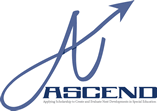 Project Ascend (ASCEND)
Project Ascend (ASCEND)
George Mason University (GMU) is pleased to offer fellowship funding for qualified applicants to a new, more intensive and comprehensive cohort doctoral program in high incidence disabilities to prepare individuals for special education positions in higher education.
 Severe Disabilities Consortium (SDC)
Severe Disabilities Consortium (SDC)
The purpose of the program is to increase the number of teachers in the state of Virginia with endorsement in severe disabilities (SD) through a statewide distance education based program. Every semester, the Consortium awards a limited number of tuition waivers to applicants who meet the requirements. First preference is given to school personnel currently working with students with severe disabilities in all geographic areas of Virginia. Other applicants will also be considered.
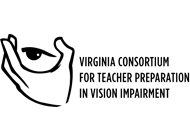 Virginia Consortium for Teacher Preparation in Vision Impairment
Virginia Consortium for Teacher Preparation in Vision Impairment
The VI Consortium is made up of five universities: George Mason University, James Madison University, Norfolk State University, Old Dominion University and Radford University. Its primary goal is to prepare teachers to be highly skilled at working with students with visual impairments and blindness.
Research and Development
Adapted Captions Through Interactive Video (ACTIV)Adapted Captions Through Interactive Video (ACTIV) project is aimed to develop an innovative technology-based approach based on the principles of universal design for learning that enables access and participation of students with various disabilities in appropriate challenging academic curriculum. This technology will allow enhancing existing content-based videos in any subject area with adapted and interactive features such as regular text, highlighted text, and/or picture-symbol captioning; verbal and visual cuing; interactive hyperlinks in order to search the video for answers; and built-in testing activities in various formats.
DEVISE ProjectThe goal of the DEVISE project is to design, develop, and evaluate an immersive multi-sensory virtual learning environment that addresses the foundations of physics instruction for students with learning disabilities.
KIHd System ProjectThis project investigates teacher usage of the Kellar Instructional Handheld Data (KIHd) System in a metropolitan school where discrete trail teaching is employed with students on the Autism spectrum. A mixed methodology will be implemented for a two year period to ascertain information in three main areas: data driven decisions, teacher planning, and technology adoption. The first component will test the effectiveness of how teachers are making data driven decision and, given different parameters, will determine if those decisions remain constant. The second component will look at teacher use of planning and will provide insight to other activities that were previously prohibited due to a lack of time. The third component will evaluate teachers' perceptions about a one touch data collection system in regard to technology adoption. The study is USDOE Stepping Stones of Technology Grant.
Literacy Access OnlineThe Literacy Access Online site is being developed to help facilitators (parents, tutors, teachers, and other interested individuals) work with children who are having difficulties becoming good readers. This is a collaborative project between the Helen A. Kellar Institute for Human disAbilities, George Mason University, Fairfax, Virginia and the Parent Educational Advocacy Training Center, Springfield, Virginia. The project is in the third year of development and is funded by a Steppingstones to Technology grant from the U.S. Department of Education. The goal of LiteracyAccess Online is to provide you (or a facilitator) and your child with an enjoyable means of reading together to improve your skills as a facilitator and your child's skills as a good reader. LiteracyAccess Online provides opportunities to build enthusiasm for both learning to read and for teamwork.
Please click here for more information about Literacy Access OnlinePeggy King-Sears is the Primary Investigator of one portion of a multi-partner grant focused on enhancing the math performance of middle school students. Dr. King-Sears is collaborating with colleagues from Johns Hopkins University to develop math materials, using Universal Design for Learning (UDL) principles, that math educators (including special educators) can use to teach students with and without math disabilities. Three math units are targeted for analysis, with UDL-enhanced materials eventually becoming one tool within a more comprehensive "Mathematics Improvement Toolkit." This three-year project, funded by the U.S. Department of Education, is titled: Enhancing Middle-Grades Mathematics Outcomes for All: Strengthening Mathematics Teaching and Learning for Special Populations.
Policy

National Assistive Technology Research Institute (NATRI)
The National Assistive Technology Research Institute (NATRI) conducts assistive technology (AT) research, translates theory and research into AT practice, and provides resources for improving the delivery of AT services.
 National Institute for Early Education Research (NIEER)
National Institute for Early Education Research (NIEER)
The National Institute for Early Education Research supports early childhood education initiatives by providing objective, nonpartisan information based on research.
About PRISE
Policy and Research Intensive Special Educators (PRISE) Doctoral Training Program
Mason’s PhD in Education with a specialization in Special Education prepares leaders in the field focused on research, teaching, and policy. Now, six doctoral candidates will have their tuition and other expenses covered through the OSEP funded PRISE program.


